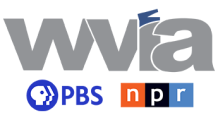Extras
Learn about Operation Sustain, a video game that teaches kids about climate change.
Episode:
S1
E11
|
5:03
What if you could turn almost any surface into a solar panel?
Episode:
S1
E5
|
4:02
If you could teleport inside a polluted box to save lives, would you?
Episode:
S1
E8
|
5:23
How can we reduce agricultural waste? Replace fish meal with mealworms.
Episode:
S1
E9
|
6:08
Your hamburger choice has real consequences for the environment.
Episode:
S1
E7
|
4:48
Scientists at Intellectual Ventures Laboratory are batting mosquitoes with... laser beams.
Episode:
S1
E6
|
4:19
A suburb just outside of Seattle hides a nuclear reactor.
Episode:
S1
E4
|
4:16
A grassroots effort to develop lighter, more affordable, personal rapid transit.
Episode:
S1
E3
|
3:48
A startup company in Seattle is converting food waste into electricity and fertilizer.
Episode:
S1
E2
|
4:34
A scientist at Oregon State University is developing edible food packaging and coatings.
Episode:
S1
E1
|
3:32
Latest Episodes
Learn about Operation Sustain, a video game that teaches kids about climate change.
Episode:
S1
E11
|
5:03
What if you could turn almost any surface into a solar panel?
Episode:
S1
E5
|
4:02
If you could teleport inside a polluted box to save lives, would you?
Episode:
S1
E8
|
5:23
How can we reduce agricultural waste? Replace fish meal with mealworms.
Episode:
S1
E9
|
6:08
Your hamburger choice has real consequences for the environment.
Episode:
S1
E7
|
4:48
Scientists at Intellectual Ventures Laboratory are batting mosquitoes with... laser beams.
Episode:
S1
E6
|
4:19
A suburb just outside of Seattle hides a nuclear reactor.
Episode:
S1
E4
|
4:16
A grassroots effort to develop lighter, more affordable, personal rapid transit.
Episode:
S1
E3
|
3:48
A startup company in Seattle is converting food waste into electricity and fertilizer.
Episode:
S1
E2
|
4:34
A scientist at Oregon State University is developing edible food packaging and coatings.
Episode:
S1
E1
|
3:32












